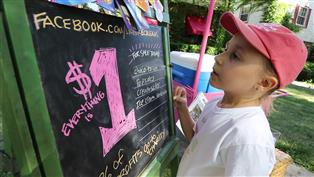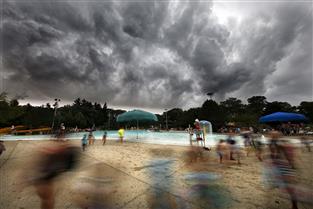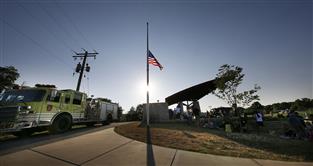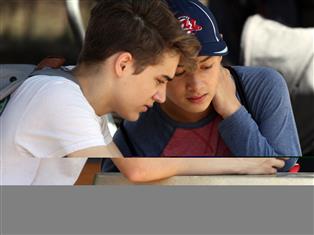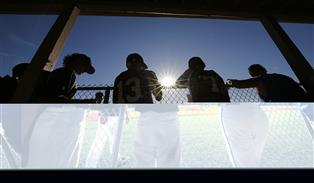Wauwatosa School District studying big changes in high school science curriculum
Poor performance drives change in high school curriculum
Lagging performance in science and an audit that found a lack of connection in science offerings is driving change in the high school science curriculum for next year, said David Dentinger, secondary coordinator for student learning for the Wauwatosa Public Schools.
The change includes requiring core science classes in biology, chemistry and physics - which were previously one-semester, full-year classes - and adding, as an option, an "advanced" full-year course in each of the three subjects.
The advanced courses would be offerings at a level in between the regular courses and the advanced placement courses for college credit in each topic.
Earth science, a ninth-grade staple, will be embedded in the new courses, based partly on feedback from some students that they had already studied the subject in middle school, Dentinger said.
Three years of science will be required for graduation, including one year of biology and one year of a physical science such as chemistry or physics, according to the curriculum plan.
A clearer path
The new, more rigorous model replaces a curriculum that may have seemed to offer more choice, especially to upperclassmen, but allowed students to move ahead by taking courses such as astronomy or advanced earth science without delving more deeply into the core sciences.
No fewer than nine options were offered to 11th- and 12-graders, ranging from Advanced Earth Science to AP Physics C, a math-heavy physics course recently added to the curriculum.
The choices aren't fewer in the new plan, but the chart shows a clearer path for each of the grade levels and offers APs and the earth science and astronomy courses as electives.
Both old and new curricula offer four engineering classes in fulfilling the district's commitment to Project Lead the Way/STEM education.
Why change was needed
Dentinger said various data pointed to the need for beefing up the science curriculum.
In comparing science scores on the ACT college admission test, Wauwatosa has ranked near the bottom of nine area school districts for the last five years. The other eight districts are Elmbrook, Whitefish Bay, Mequon-Thiensville, New Berlin, Shorewood, Nicolet, Pewaukee and Menomonee Falls.
Last year - the 2011-12 school year - Wauwatosa's ACT science scores were the lowest in the group.
Comparing college-readiness within the district using four skills and subject matters, science ranked a distant fourth compared to English, math and reading.
The data, again based on ACT scores, show that over the last five years, only half of the students tested were college-ready in science. This compares poorly to the roughly 70 percent of students college-ready in math and reading and the 80-plus percent of students college-ready in English.
Data from WKCE tests, state Department of Public Instruction assessments, also show declining achievement in science.
"We're certainly not seeing improvement," Dentinger said.
Disconnected courses
In addition to the quantitative measures showing low performance in science, Dentinger said, there was qualitative evidence in the form of an audit performed by LeRoy Lee, executive director of the Wisconsin Science Network.
"He did a comprehensive study of the K-12 science program here in Tosa, and that revealed that at the high school level there is a lack of connection among the different semester courses, among the concepts, etc.," Dentinger said.
The audit also found that the high school science curriculum was topics-driven - based on delivering information - rather than on developing skills, which is recommended by organizations that develop educational standards such as the Next Generation of Science Standards and the Common Core State Standards, he said.
Dentinger said a scan of high-performing state schools also found that "none of them were using a semester model" for some of the science classes that Wauwatosa was offering in a semester. In addition, a negative by-product of the semester model is that a student may have to take three semesters to be ready for an AP class, rather than two.
The audit included a survey of "hundreds of kids," Dentinger said, and found that the students said the semester courses in ninth- and 10-grade - biology, earth/space, chemistry and physics - were not needed to do well in the subsequent courses, which were year-long courses termed "advanced."
A phased-in approach
The plan recommended a phase-in of the new curriculum, beginning by offering the new biology and advanced biology courses next year, the chemistry and physics classes in 2014-15, and taking a harder look at electives in 2015-16.
AP courses would be unchanged.
Creating the new curriculum was the work of a science content team that includes four meetings of all high school science teachers.
Dentinger, Director of Student Learning Beth Erenberger, and science teachers Judy Patrick and Tom Schnieder presented the plan for change to the School Board last week. The board is likely to take action on the proposal Monday.
More from News and Features
- Anodyne Coffee plans to open location in Wauwatosa Village
- Wauwatosa Meetings: Aug. 4
- Video: Wauwatosa girl's curbside ice cream stand raises money for the hungry
- Wauwatosa News and Notes: Hands-only CPR training offered; Firefly Art Fair is Aug. 6-7
- Wauwatosa Ask Now: Why are there barriers and fencing along the North Avenue bridges over the Menomonee River?
- Mystery Photo Contest: July 28
- Wauwatosa gears up for National Night Out event, this year at the zoo
- Election 2016: Wisconsin's 4th District candidates weigh in
- Wauwatosa's Luther Manor residents share smiles through flower delivery
- Wauwatosa Police Report: July 17-23







